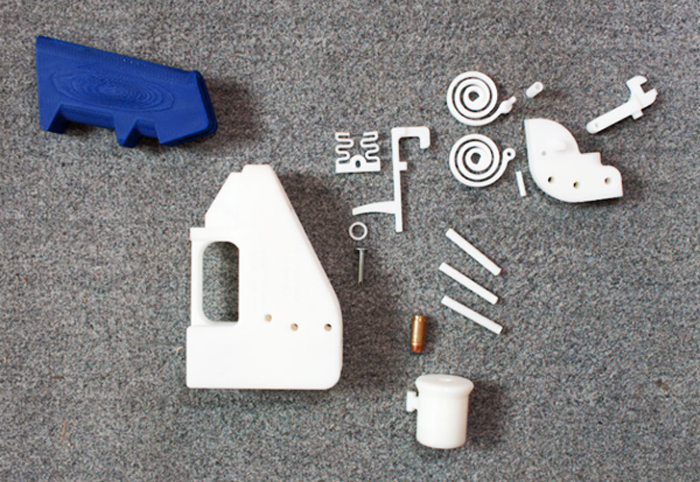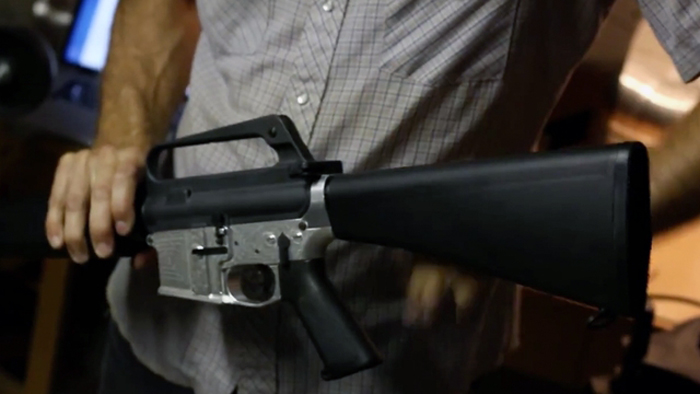More than a year ago, Representative Steve Israel (D-NY) had been working to include language specifically regulating the practice of 3D printing guns in an extension of Undetectable Firearms Act, a law written in the 1980s to ensure that all guns be manufactured with components that would be picked up by metal detectors. The extension of the Act passed in December of 2013, without any revisions related to 3D printing, despite Rep. Israel’s initial attempts, but, it seems that Israel is still working to reintroduce the Undetectable Firearms Modernization Act in “the next few months”, according to Wired. He tells the tech site:
My legislation is about making sure that we have laws in place to ensure that criminals and terrorists can’t produce guns that can easily be made undetectable. Security checkpoints will do little good if criminals can produce plastic firearms and bring those firearms through metal detectors into secure areas like airports or courthouses. When I started talking about the issue of completely plastic firearms, I was told the idea of a plastic gun is science-fiction. That science-fiction is now a dangerous reality.
While the current legislation only requires that a gun require some piece of metal, so that it may be registered by a metal detector, Israel’s updated law would require that a functional portion of the gun be metal. Cody Wilson’s Liberator pistol, the most famous of 3D printed guns, contained one, non-functional metal component, so that it would comply with the Undetectable Firearms Act, at the same time making it easy to remove and replace the metal part before and after passing through a metal detector.

The congressperson’s new legislation would go further to require that the cylinder and barrel of handguns be detectable and, in the case of rifles and shotguns, the slide, barrel, and receiver. The representative explains to Wired, “Current law is completely inadequate, and though for my Republican colleagues it was easier to live with current law than to expand it, it is critical that we continue the national dialogue about undetectable fire arms.”
Michael Weinberg, VP at Public Knowledge with a focus on 3D printing, originally urged Israel in 2013 to broaden his bill’s language, from targeting 3D printing specifically, to addressing undetectable weapons more generally. They stated, at the time, “If a gun gets smuggled through airport security, it does not really matter how it was made. What matters is that it was undetectable, not that it was manufactured on a 3D printer, or a CNC machine or with an injection molder.”

With Israel’s legislation, the law would be just as applicable to an AR-15 with a metal receiver fabricated by Defense Distributed’s Ghost Gunner CNC mill. What it doesn’t consider is that anyone could create an unlicensed gun at home that would not be tracked by local or federal government, something that California Senator Kevin de Leόn attempted to address with Senate Bill 808 last year. It also wouldn’t have any affect on the fact that it is much easier to obtain a gun illegally or legally than it is to 3D print one, but, because it is notoriously difficult to pass any gun regulation in the US, this may be Israel’s attempt to make some small move towards regulation.
Or, considering that Cody Wilson is seeking a Mark One 3D printer for 3D printing guns with carbon fiber, it’s possible that Israel is up to date on the progress made in DIY guns. Weinberg, who now works as general counsel for Shapeways, may be okay with the Israel’s new legislation, as it maintains its broader language on firearm detectability. Weinberg says, as Wired relays, “What we didn’t want to happen was a situation where 3D printing of guns explicitly was made illegal. There are a lot of ways to make undetectable firearms, and if you focus on each one you’ll end up with pretty ineffective legislation.”



